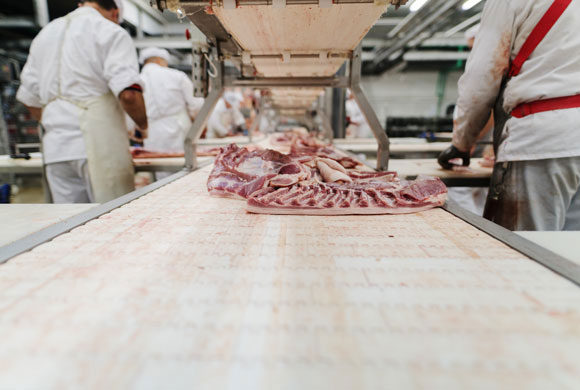The U.S. Department of Agriculture has said it will not appeal a federal court ruling restricting line speeds at pork processing facilities, which is likely to reduce processing capacity and disrupt the market for pork producers.
Pennsylvania had urged USDA to take action in light of the ruling to protect producers’ ability to market their hogs according to pre-existing contracts. Without such action, PFB warned, farmers will be forced to sell their hogs at significantly lower prices and smaller-scale producers, including many in Pennsylvania, will be disproportionately affected.
“This court ruling will have very real impacts on our state’s hog farmers, causing them significant economic harm,” PFB President Rick Ebert wrote in a letter to USDA Secretary Tom Vilsack. “The lost revenue resulting from the court ruling will predominantly hurt small hog farmers like we have in Pennsylvania. When capacity is short, packers are far more likely to terminate contracts with small farmers than larger ones, forcing small producers to sell hogs at reduced spot prices.”
The court order takes effect June 30. USDA still has other options to support producers; however, no mitigation steps have been announced yet at this time.
The ruling by a U.S. District Court in Minnesota vacated part of USDA’s 2019 rule implementing the New Swine Inspection System that allowed pork processors to set line speeds rather than be limited by a federally mandated maximum. Other aspects of the NSIS, implemented following a two-decade pilot that began during President Bill Clinton’s administration, remain in place.
While the court ruling cited USDA’s failure to consider worker safety concerns when drafting the rule, evidence that increasing line speeds poses a risk to worker safety is lacking. Processors participating in the NSIS pilot have been running at faster speeds for more than 20 years without a corresponding increase in worker safety concerns. In fact, a comparison of federal data found that the NSIS pilot facilities had lower mean injury rates than other facilities that were required to follow line speed limits.
Farm Bureau is continuing to examine the issue to determine what steps can be taken to continue to advocate for pork producers.
Latest PFB News:
Help lead Pennsylvania Agriculture

